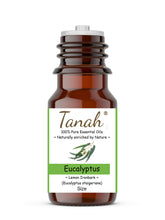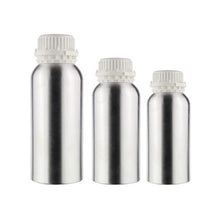COMMON NAME: Eucalyptus, Lemon Ironbark
BOTANICAL NAME: Eucalyptus staigeriana
PLANT PART USED: Leaves and green branchlets
EXTRACTION METHOD: Steam distilled
COUNTRY OF ORIGIN: Australia
COLOUR: Clear to very pale yellow
AROMATIC SCENT: Lovely, sweet, fresh, lemony Eucalyptus smell. One of the more pleasant Eucalyptus scents! [Quite different to the aroma of Eucalyptus Lemon Scented Gum.]
Eucalyptus Essential Oils from Australia
Australia boasts a captivating tapestry of Eucalyptus trees, each contributing its distinct essence to the landscape. Within this botanical treasure trove, Tanah Essential Oil Company has meticulously sourced and curated a selection of 8 popular Eucalyptus essential oils, now accessible for everyone to experience and enjoy.
Australia is renowned for its diverse Eucalyptus essential oils, each with unique characteristics and therapeutic properties. These oils are extracted from various species of the Eucalyptus tree, showcasing distinctive aromatic profiles and numerous benefits for holistic well-being.
Eucalyptus essential oils offer numerous benefits; it's important to use them mindfully and consult a qualified aromatherapist or healthcare professional, especially if you have specific health conditions or concerns. Always perform a patch test before applying any essential oil topically and adhere to recommended dilution ratios.
Main Therapeutic Properties of Eucalyptus essential oils:
Regardless of their specific botanical varieties, Eucalyptus essential oils share several common therapeutic properties due to the presence of key constituents such as 1,8-cineole (eucalyptol), alpha-pinene, and others.
Here are some of the main therapeutic properties associated with eucalyptus essential oils:
- Respiratory Support: Eucalyptus essential oils are well-known for their ability to support respiratory health. They can help open up airways, ease congestion, and promote easier breathing. These oils are commonly used in inhalation blends, steam inhalations, and chest rubs to relieve respiratory discomfort.
- Anti-inflammatory: Eucalyptus oils may possess anti-inflammatory properties, particularly those with high levels of 1,8-cineole. They can alleviate muscular discomfort, joint stiffness, and other inflammatory conditions.
- Antimicrobial: Eucalyptus oils have demonstrated antimicrobial activity against various microorganisms, including bacteria, viruses, and fungi. They are often used in cleaning products, diffusers, and personal care formulations to help create a more hygienic environment.
- Antiseptic: Due to their antimicrobial properties, eucalyptus oils are used as natural antiseptics to clean wounds, cuts, and minor skin irritations. They can help prevent infection and promote wound healing.
- Analgesic: Eucalyptus oils may have mild analgesic (pain-relieving) properties. They can be incorporated into massage blends or topical applications to help alleviate muscle aches and pains.
- Expectorant: Eucalyptus essential oils can help loosen mucus and phlegm, making it easier to expel from the respiratory system. This property is beneficial for addressing coughs and congestion.
- Decongestant: Eucalyptus oils can help relieve nasal congestion and sinus pressure. They are often used in steam inhalations or diffusions to clear nasal passages.
- Mental Clarity and Focus: The refreshing aroma of eucalyptus oils promotes mental clarity, alertness, and focus. Diffusing these oils can create an uplifting environment conducive to concentration.
- Immune Support: Eucalyptus oils may have immune-stimulating properties, helping to strengthen the body's natural defence mechanisms.
- Insect Repellent: Some eucalyptus oils, such as those high in citronellal, possess insect-repellent properties, making them helpful in keeping insects at bay.
It's important to note that individual responses to essential oils can vary, and these therapeutic properties are based on traditional uses and anecdotal evidence. When using Eucalyptus essential oils for specific medicinal purposes, it's recommended to consult with a qualified aromatherapist or healthcare professional.
Description:
Eucalyptus Lemon Ironbark:
Botanical Variety: Eucalyptus staigeriana
Eucalyptus Lemon Ironbark, scientifically called Eucalyptus staigeriana, boasts a delightful lemony aroma with hints of floral and fruity accents. It is often selected for its uplifting and soothing qualities. This oil is believed to have a calming influence on the mind and is utilised in aromatherapy to promote a positive atmosphere.
Eucalyptus Lemon Ironbark is a harmonious embodiment of citrus and therapeutic goodness within Australia's rich botanical heritage. With its unique aromatic profile and potential benefits, this Eucalyptus species is a cherished contributor to natural wellness.
Eucalyptus Lemon Ironbark stands out with its elegant lance-shaped leaves and distinctive citrus aroma that mirrors the uplifting scent of lemons. The essential oil derived from its leaves emits a delightful and sweet lemony fragrance, adding a cheerful note to the aromatic world.
Key Constituents:
- Citronellal: This is the principal constituent in Eucalyptus Lemon Ironbark essential oil and is responsible for its lemony solid aroma. It is also known for its potential insect-repelling properties.
- Citronellol: This compound adds to the oil's citrusy aroma and is often found in essential oils with uplifting and refreshing scents.
- Isopulegol: Isopulegol contributes to the oil's minty and slightly fruity aroma and may have potential antimicrobial properties.
- Limonene: Limonene is a common constituent in citrus oils and adds to the oil's citrusy and uplifting scent. It is known for its mood-enhancing effects.
- Piperitone: Piperitone adds to the oil's minty and camphoraceous aroma and may have analgesic and anti-inflammatory properties.
- Linalool: Linalool contributes to the oil's overall scent and is often associated with relaxation and stress relief.
- Cis-dihydrocarvone: This compound adds to the oil's complex aroma and may have potential therapeutic properties.
- Isopulegone: Isopulegone is a terpenoid contributing to the oil's unique fragrance.
- Para-Cymene: Para-cymene adds to the oil's aromatic profile and may have potential antimicrobial effects.
- Eucalyptol (1,8-Cineole): In smaller amounts in Eucalyptus Lemon Ironbark, eucalyptol contributes to the oil's potential respiratory-supporting properties.
Topical Use:
Eucalyptus Lemon Ironbark can be diluted and applied topically to promote a positive mood. It may also be added to skincare routines for its soothing properties.
Diffusion Use:
Diffusing Eucalyptus Lemon Ironbark uplifts the spirit and enhances well-being. Its citrusy aroma creates a refreshing and joyful environment.
Cautions:
Eucalyptus Lemon Ironbark is generally safe when used appropriately. As with all essential oils, it should be kept out of reach of children and used with care.
Disclaimer/Copyright:
The information provided by Tanah Essential Oil Company is for general informational purposes only. We aim to keep the information up-to-date and accurate. However, we do not represent professional advice. Please be aware that the information on this website is provided "as is" without any representation or warranty, express or implied. Accordingly, we neither warrant nor represent that the use of this website will be uninterrupted, error-free, or other harmful components.
Copyright laws protect Tanah Essential Oil Company. Without our written consent, you may not reproduce, modify, distribute, transmit, display, perform, publish, license, transfer, or sell any information from this site. Violation of these provisions will result in civil and criminal penalties. Products or services obtained from this website without the express written consent of Tanah Essential Oil Company. If you don't have permission to use any of the content on this website, you may be breaking copyright, trademark, and other laws.








